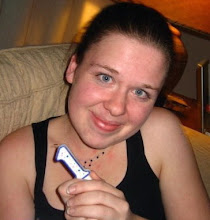Even in high school, as an avid writer and English geek to the core, I truly hated the term narrative. I assumed, like many, narrative only encompassed what great writers — Charles Dickins, Mark Twain, J.D. Salinger — had done in their classic works. My English teachers would write comments on my papers like, 'clear and concise, but lacking personal narrative.' I thought to myself, 'well, I'm going to be a journalist, I won't have to write in that style.'
After coming to Ithaca College and having the inverted pyramid drilled into my head so much I could do it in my sleep, I still thought I was right. But through discussions with faculty and classmates, I've decided to set my own ambitions a little higher this year.
While my high school journalism career was important, it was only after spending a year as a writer for The Ithacan, that I realized journalism, much like classic literature, is about telling a good story. When I thought of books I've read, certain aspects of the stories jump out at me: plot, character, location, tone, style. And while journalists use AP style and inverted pyramid, they also use aspects similar to literature to do their job: tell a good story.
The newspaper industry is dying. And even despite the flashy Web sites and celebrity gossip that plague much of our print and online media, we're losing our audiences. As journalists, we've forgotten that we have a responsibility to write about subjects that may not be the most popular story of the day or that may not be something people know or even care about, but rather, we need to write about things that should be talked about and need to be talked about, no matter how unpopular.
Furthermore, it is also our responsibility to tell these important stories the best way they can be told, whether it be through traditional writing, still photos, video, audio slideshows or something else. We need to engage the reader and entice them to care about issues that are imperative to their lives, whether they know it before looking at the story or not.
This year, I plan to do just that. In addition to my Nonfiction Lab, a course that is, according to the syllabus, designed to teach us how to produce long-form narrative in a variety of media, I'll be having weekly meetings with a small group of peers to discuss and hopefully improve our ability to write with strong personal narrative, while maintaining our journalistic obligations.
And while the efforts of one person to do all that sounds cliché and probably won't make a huge impact, I'm sure it'll at least satisfy my former high school English teachers, as well as myself.
Friday, 25 January 2008
Subscribe to:
Post Comments (Atom)

No comments:
Post a Comment